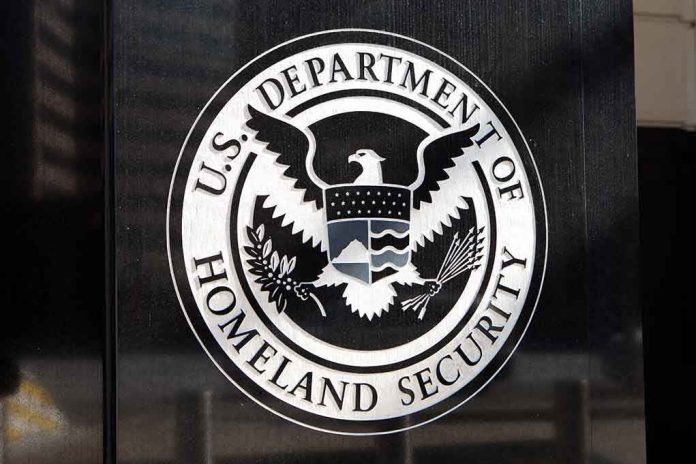
What happens when a sitting senator accuses federal agents of chasing after “gardeners” instead of actual criminals? You get a firestorm of backlash that highlights the absurdity of misplaced priorities in the world of immigration enforcement.
At a Glance
- Sen. Dick Durbin criticizes DHS for focusing on non-violent undocumented immigrants.
- DHS defends its operations, citing arrests of violent criminals and rescue of exploited children.
- Political rhetoric and sanctuary policies contribute to increased assaults on ICE agents.
- The debate over immigration enforcement priorities remains highly polarized.
A Clash Over Priorities
The Department of Homeland Security (DHS) found itself on the defensive after Sen. Dick Durbin (D-Ill.) accused it of wasting resources by arresting non-violent undocumented immigrants, such as laborers and gardeners, instead of focusing on serious criminals. This criticism, voiced during a Senate Judiciary Committee hearing, comes amid a backdrop of rising attacks on Immigration and Customs Enforcement (ICE) officers, which DHS attributes to inflammatory political rhetoric.
DHS, however, isn’t sitting quietly. In a robust defense, the agency highlighted recent operations that resulted in the arrest of individuals with serious criminal records, including those involved in kidnapping, rape, and burglary. These operations also led to the rescue of children from exploitation and trafficking, underscoring the agency’s commitment to public safety.
The Role of Sanctuary Policies
Sanctuary policies, like those in Illinois, add layers of complexity to the debate over immigration enforcement. These policies often limit local law enforcement’s cooperation with federal immigration authorities, creating friction between state and federal agencies. The result is a tug-of-war over enforcement priorities, where federal agents are accused of diverting attention from critical investigations into organized crime, drug trafficking, and human trafficking.
Sen. Durbin’s criticism reflects a broader narrative that suggests federal resources are misallocated, leaving communities vulnerable to organized crime. Meanwhile, DHS insists that its focus remains on the “worst of the worst,” emphasizing that recent operations have disrupted criminal networks and improved public safety.
The Impact on Law Enforcement and Communities
The ongoing debate has significant implications for law enforcement and immigrant communities. For ICE and Homeland Security Investigations (HSI) agents, the increased public criticism and doxing incidents have led to a 500% increase in assaults against personnel. These attacks not only endanger the lives of agents but also strain the resources and morale of law enforcement agencies.
For immigrant communities, especially those without criminal records, the threat of detention and deportation looms large. This fear can create a chilling effect, discouraging cooperation with law enforcement in reporting crimes or participating in community safety initiatives.
A Nation Divided
The divide over immigration enforcement priorities mirrors the broader political polarization in the country. Pro-enforcement advocates argue that strict immigration control deters illegal entry and protects citizens, while civil liberties groups contend that indiscriminate enforcement harms families and disrupts communities.
The Trump administration’s emphasis on strict immigration control continues to shape DHS policies, but the ongoing debate signals potential legislative battles and legal challenges. As DHS publicizes its enforcement successes, critics remain steadfast in calling for a reallocation of resources toward combating organized crime and protecting vulnerable populations.
Sources:
White House: Protecting the American People Against Invasion
DHS: ICE, CBP Arrest at Least 361 Illegal Aliens During Marijuana Grow Site Operation
DHS: Making America Safe Again





